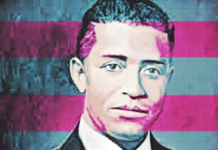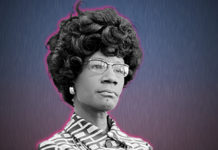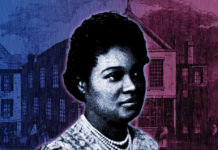Students connecting with teachers is a crucial aspect of them being willing to take in content from a teacher. One of the first tasks teachers have is learning their students’ names. Unfortunately, this is where some teachers mess up and damage their relationship with students even before it begins.
I can relate to students who go year after year with teachers not learning their names. I know those students’ pain because I have a name that has been mispronounced and misspelled while I was a student — and even now as an adult. Students spend a significant amount of time at school. It is frustrating for them to be in a space where teachers do not call them by the name their parents had given them.
For the majority of my career, I have worked in the secondary school setting, and I also was an elementary librarian in a K-6 school. As an English teacher, and later as a librarian, I had a large number of names to learn. On the first day of school, I was intentional about carving out time, essentially as long as it took, to make sure I knew how students’ names were pronounced. This did not mean I had internalized the pronunciation, but I had notes for any name that I did not know how to pronounce. I wrote these notes on my roster for each class once a student taught me how to say his or her name.
When a child’s name is repeatedly misspelled or mispronounced, it is like death by paper cuts. It may seem like a small slight, but over time it chips away at a student, especially if this happens every year.
Yes, this consumed time, but that time was a powerful investment. On the flip side, I could have chosen not to make the effort and then have an uphill battle with students during the year because I mispronounced or misspelled their names. Even if a student isn’t overly vocal, the damage is done. When a child’s name is repeatedly misspelled or mispronounced, it is like death by paper cuts. It may seem like a small slight, but over time it chips away at a student, especially if this happens every year.
Warsan Shire, a poet who was named the first Young Poet Laureate for London in 2014, once wrote the brief piece “the birth name.” on Tumblr. She wrote,
give your daughters difficult names. give your daughters names that command the full use of tongue. my name makes you want to tell me the truth. my name doesn’t allow me to trust anyone that cannot pronounce it right.
In a 2012 interview, Shire was asked about these lines that have been frequently quoted from “the birth name,” and for background information about her name. She shared the following:
Warsan means “good news” and Shire means “to gather in one place.” My parents named me after my father’s mother, my grandmother. Growing up, I absolutely wanted a name that was easier to pronounce, more common, prettier. But then I grew up and understood the power of a name, the beauty that comes in understanding how your name has affected who you are.
If students can’t trust teachers to learn their names, how can they believe the teacher can be a person they can trust to help facilitate their learning? When teachers choose not to learn students’ names, it can contribute to them wishing they had another name despite the meaning, beauty, and power of their name. This battle can carry over into adulthood.
Comedian Hasan Minhaj name was constantly mispronounced and, even as an adult gaining more prominence in comedy, he did not correct people. When he was a guest on CBS This Morning, Gayle King repeatedly mispronounced his name, but he did not correct her. At the end of the interview, King slid in a comment about Nicki Minaj at the end of the interview, which seemed to only be included due to how King believed Minhaj’s name was pronounced. And this isn’t the only interview with his name not being said correctly. Minhaj reminds me of students who are so tired of correcting people or speaking up about their name, that their default becomes not to correct anymore.
Then Minhaj was on The Ellen Show and his parents were in the audience. He finally decided to speak up about the correct pronunciation. The camera briefly shows his parents. His mom was beaming with pride.
Later, Minhaj answered the question, “Was it a tough decision to go back to the original pronunciation of Hasan?” His response can be viewed at the 15:22 mark of “Hasan Hears Hot Takes From The Audience.” In this clip, he elaborates on why he used The Ellen Show to set the record straight.
My hope is that students do not have to wait until adulthood to put their foot down about their names. It is not only about mispronouncing and misspelling, teachers also should not shorten or leave out part of students’ names.
In the novel “Call Me Maria: A Novel in Letter, Poems, and Prose” by Judith Ortiz Cofer, a poem was included in the chapter, “Crime in the Barrio.”
It begins
with your second last name
gone missing from your mailbox,
school ID, and learner’s permit.
It is hard to explain to your relatives
back on the Island.
Your mother says,
you had it
when you left home,
where is it now?
You cannot claim
to have misplaced
your mother’s surname.
Your Abuela suggests
that you retrace your steps.
Instead, you decide
to just tell everyone
to call you María
“Just call me María,” you say.
It’s much simpler this way.
The child in the novel found it easier to ignore part of who she was. When students choose this path, they may have been on the receiving end of criticism about their name, heard a teacher sigh or make a negative facial expression, or even be told there is an issue with the pronunciation or spelling of their name. Teachers can help students advocate for themselves and learn how to not only speak up, but be steadfast in continually speaking up each time their name is not said or spelled correctly. Although I believe this skill is important for students to learn, as adults, the responsibility remains on teachers to not put students in constant situations of having to advocate to be called by their names.
Although I wondered why I had a difficult name when I was younger, today those concerns are gone. I am proud to be blessed with a strong name, a bold name, a memorable name. People like me should be proud. The poem “Unforgettable” performed by Pages Matam, Elizabeth Acevedo, and G. Yamazawa should remind people of the importance of names and the impact of having an Americanized name instead of a name rooted in culture, ethnicity or family history.
A person’s name is one of the most meaningful aspects of a person. If teachers want to build strong relationships, they will start by learning students’ names.
In case you are wondering, my first name is Shawnta. The second ‘a’ is long (Shawn-tay), and my middle name is Shicole. The ‘i’ is silent (Sh-cole).










